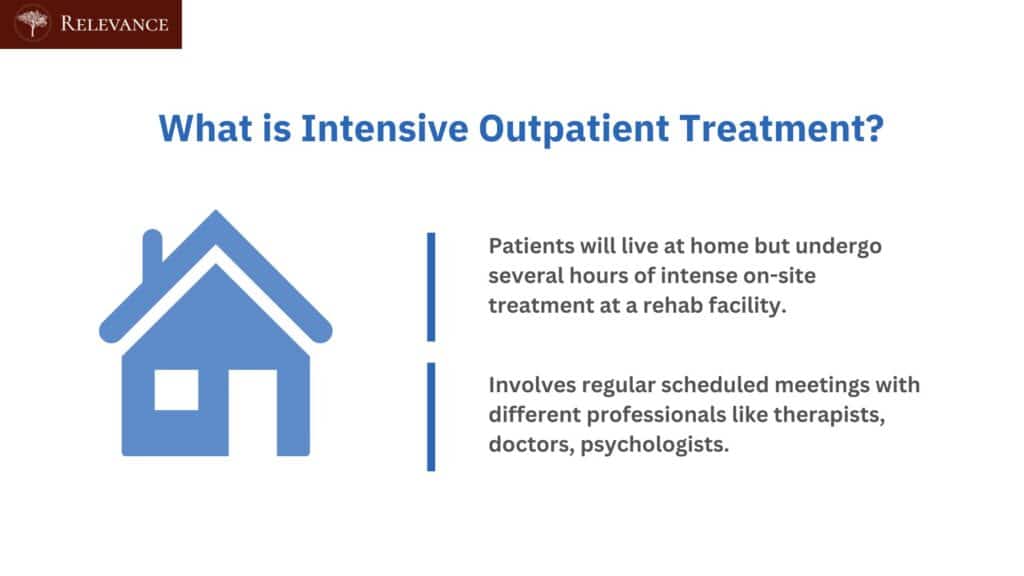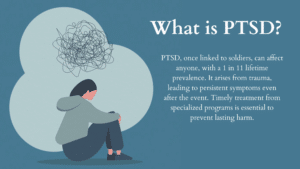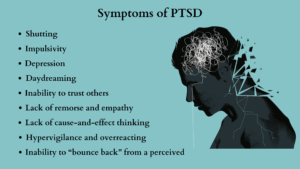Mental health includes our emotional, psychological, and social well-being. It affects how we think, feel, and act. It also helps determine how we handle stress, relate to others, and make choices. Mental health is important at every stage of life, from childhood and adolescence through adulthood. However, there are often significant misconceptions related to mental health. Here are five common mental health misconceptions.
You are either mentally ill or mentally healthy
Similarly to physical health, it is inaccurate to suggest that someone is 100% mentally healthy. Many different factors can affect someone’s mental health, and these can vary significantly in the severity of the impact these have on a person’s overall state of mental health. It is not a simple case of being either mentally ill or mentally healthy; we all have good and bad days.
The impact of mental health misconceptions on individuals and society
Mental health misconceptions can have a profound impact on individuals, often leading to feelings of isolation, shame, and confusion. When society perpetuates myths surrounding mental health, individuals grappling with these conditions may feel pressured to hide their struggles. This lack of openness can prevent them from seeking help, ultimately exacerbating their mental health issues. The stigma attached to mental health challenges can create an environment where individuals believe they must suffer in silence, leading to worsening symptoms and a decline in their overall well-being.
On a societal level, these misconceptions contribute to systemic issues that hinder the development of effective mental health resources and policies. When mental health is framed as a sign of weakness or a character flaw, it becomes less likely that communities will advocate for necessary changes to address mental health care. Resources may be underfunded, and initiatives aimed at promoting mental health awareness may lack support. This can result in a cycle where individuals do not receive the help they need, perpetuating the stigma and misunderstanding surrounding mental health conditions.
Moreover, the impact of these misconceptions extends beyond the individual and societal realms, affecting families and relationships as well. Loved ones of those struggling with mental health issues may not understand the complexities of these conditions, leading to frustration and alienation. The lack of education surrounding mental health can create barriers to empathy and support, ultimately hindering the healing process. By acknowledging and addressing these misconceptions, we can foster a more supportive environment for individuals and families affected by mental health challenges.
Common mental health misconceptions and their origins
Mental health misconceptions often stem from cultural beliefs, historical contexts, and a general lack of awareness. One of the most pervasive myths is the idea that mental health issues only affect a small minority of the population. In reality, mental health conditions are incredibly common, affecting millions of individuals worldwide. This misconception can lead to feelings of isolation for those experiencing mental health challenges, as they may believe they are alone in their struggles. The origins of this myth can often be traced back to a lack of representation and discussion in media, education, and public discourse.
Another common misconception is the belief that mental health issues are purely psychological rather than physiological. This misunderstanding overlooks the biological, genetic, and environmental factors that contribute to mental health conditions. By framing mental health solely in terms of personal failure or weakness, society neglects the importance of understanding these conditions as complex medical issues. This misconception often leads to the erroneous belief that individuals can simply “snap out of it” or use willpower to overcome their challenges, which can be incredibly harmful and misleading.
Cultural narratives also play a significant role in shaping mental health misconceptions. For instance, the portrayal of mental illness in films and television often leans toward sensationalism, reinforcing stereotypes of “crazy” individuals who are dangerous or unpredictable. These portrayals can perpetuate fear and misunderstanding, leading to further stigma. By recognizing the origins of these misconceptions, we can begin to dismantle them and promote a more accurate and compassionate understanding of mental health.
Debunking the misconception that mental health issues are a sign of weakness
One of the most damaging misconceptions about mental health is the belief that experiencing mental health issues is a sign of weakness. This notion perpetuates the idea that individuals struggling with conditions like depression, anxiety, or bipolar disorder lack the strength or resilience to cope with life’s challenges. In reality, mental health conditions are medical issues that can affect anyone, regardless of their character or personal strength. The roots of this misconception often lie in societal attitudes that equate emotional vulnerability with weakness.
Debunking this myth requires a fundamental shift in perspective. Mental health conditions are often triggered by a combination of genetic, environmental, and psychological factors, meaning that they are not simply a result of personal failure. Acknowledging the complexities of these conditions is crucial in fostering a more supportive environment for those affected. By recognizing that mental health struggles can happen to anyone, we can help dismantle the stigma and create a culture that encourages individuals to seek help without fear of judgment.
Furthermore, it is essential to highlight that seeking help for mental health issues is, in fact, a courageous act. It requires self-awareness and the strength to confront one’s struggles openly. Individuals who reach out for support demonstrate resilience and a commitment to their well-being. By celebrating these actions and emphasizing that mental health is an integral part of overall health, we can help shift the narrative away from weakness and toward empowerment and understanding. Acknowledging that mental health issues are not a reflection of character can pave the way for greater compassion and support.
Men don’t suffer from mental illness
A common misconception is that men are less prone to suffering from mental health issues than women because they are generally physically stronger. In contrast to this assumption, male suicide rates are about three times higher than those of females. This is often intensified by the fact that many men do not like to talk to someone when they are suffering from mental health issues.
Mental illness is rare
Many people suffer from mental illness and often feel like they are alone; however, the reality is that this couldn’t be further from the truth. One in four people will experience a mental health problem in any given year, so there is no need to feel isolated if you are going through this.
Mental illness often leads to violence
The majority of people suffering from mental illness are no more likely to be violent than any other member of the public. In fact, those facing these issues are ten times more likely to have been a victim of violence.
Mental health problems are a sign of weakness
Perhaps the biggest misconception about mental health is that those suffering from mental illness must be weak. Many people feel that they cannot express their concerns because of this stigma. Fortunately, this way of thinking has started to change over the past 20 years, but there is still a long way to go.
Dispelling the myth that therapy is only for “crazy” or “weak” people
The misconception that therapy is only for “crazy” or “weak” people can prevent many individuals from seeking the help they need. This harmful stereotype contributes to the stigma surrounding mental health care, leading people to believe that therapy is only necessary for those with severe mental health issues. In reality, therapy can be an invaluable resource for individuals from all walks of life, regardless of the severity of their struggles. It offers a safe space to explore thoughts, feelings, and behaviors while providing tools for coping and personal growth.
Therapy is not solely reserved for crises; it can be beneficial for anyone looking to improve their mental well-being, navigate life transitions, or develop healthier coping strategies. By framing therapy as a sign of weakness, we inadvertently reinforce the idea that seeking help is something to be ashamed of. This mentality can discourage individuals from pursuing therapy, even when they are facing challenges that could be addressed with professional guidance.
Dispelling this myth requires a cultural shift that promotes the idea that mental health care is a sign of strength and self-awareness. Just as individuals seek medical care for physical ailments, prioritizing mental health through therapy should be seen as an essential aspect of overall well-being. By normalizing therapy as a valuable tool for everyone, we can create a more supportive environment that encourages individuals to seek help without fear of judgment or stigma. Ultimately, recognizing the importance of mental health care can lead to healthier, more resilient communities.
Addressing the misconception that mental health issues can be easily overcome by positive thinking
One of the most persistent misconceptions within mental health discourse is the belief that positive thinking alone can solve mental health issues. While a positive mindset can be beneficial in certain contexts, it is essential to recognize that mental health conditions are complex and often require a multifaceted approach to treatment. This myth oversimplifies the realities of mental health struggles and can lead to feelings of inadequacy for those who find that their symptoms persist despite their best efforts to think positively.
The roots of this misconception can often be traced back to popular self-help culture, which frequently promotes the idea that a positive attitude is the key to overcoming life’s challenges. While cultivating a positive mindset can certainly contribute to overall well-being, it should not be viewed as a panacea for mental health issues. Mental health conditions can be rooted in biological, psychological, and social factors that cannot be addressed through positive thinking alone. This misunderstanding can lead individuals to blame themselves for not being able to “think their way out” of their struggles.
Addressing this misconception requires a more nuanced understanding of mental health. It is important to recognize that effective treatment often involves a combination of therapy, medication, lifestyle changes, and support from loved ones. Encouraging individuals to seek comprehensive care rather than relying solely on positive thinking can lead to more effective outcomes. By promoting a holistic approach to mental health that includes various treatments and supports, we can help individuals find the healing they need while validating their experiences and struggles.
Breaking down the stigma surrounding medication for mental health conditions
The stigma surrounding medication for mental health conditions remains a significant barrier for many individuals seeking treatment. Often, there is a pervasive belief that taking medication is a sign of weakness or that it equates to a lack of willpower. This misconception can prevent individuals from considering medication as a viable option for managing their mental health. In reality, psychiatric medications can play a crucial role in helping individuals achieve stability and improve their quality of life.
Understanding the science behind mental health medications is essential in breaking down this stigma. Many mental health conditions are linked to chemical imbalances in the brain, and medications can help restore these imbalances, allowing individuals to function more effectively. While medication is not a one-size-fits-all solution, and it may not be suitable for everyone, it can be an invaluable tool when combined with therapy and other support systems. By fostering a culture of understanding around mental health medications, we can help individuals feel more comfortable exploring their options.
Additionally, addressing the stigma surrounding medication requires open conversations about mental health within families, communities, and society at large. Normalizing the use of medication as part of a comprehensive treatment plan can help individuals understand that seeking help through medication is a proactive step toward healing, not a sign of weakness. By promoting education and awareness about the role of medication in mental health care, we can empower individuals to make informed decisions about their treatment while reducing the stigma that often accompanies it.











